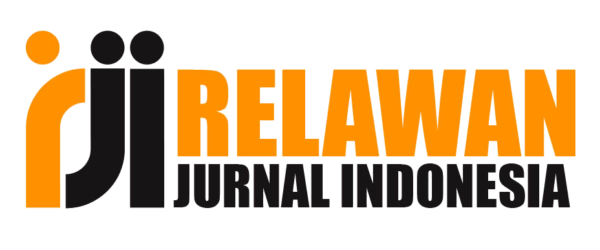Penerapan Model Pembelajaran Inquiry with Reading Infusion untuk Mengidentifikasi Perkembangan Kompetensi Literasi Saintifik Siswa SMA pada Materi Alat Optik
Abstract
Kata Kunci: Inquiry; Kompetensi literasi saintifik; Reading Infusion.
ABSTRACT
Scientific literacy competence is the competence that need to be looked at as belonging in the face of challenges in the 21st century, this meant scientific literacy competence as knowledge and scientific methods are used to investigate a issue and decision making over a problem. The results showed the scientific literacy competence is viewed not yet owned by the students due to the difficulty of the teacher in teaching scientific literacy competency through the inquiry process, because students did not have sufficient knowledge. Inquiry is a step that is appropriate for the trained point of view on scientific literacy competence since it has a step that systematic and structured in relation to trained scientific literacy competence. And with the additional task of beginning reading infusion is expected to be supportive in the process of inquiry in the classroom. So that through learning Inquiry with Reading Infusion is expected to facilitate to train scientific literacy competencies. Scientific literacy competency training includes explaining scientific phenomena, evaluate and design of scientific research, and interpret the data and scientific evidence. This research uses the pre-experimental designs with one group pre-test post-test design, using population in one of the public schools in Bandung as many as 257 students with samples of 30 students who obtained by cluster random sampling technique. To see the development of scientific literacy competence is analyzed based on student worksheet with answer categories increased refer a rubric developed by Lati W. The results showed on the aspect of scientific phenomena explained increased better than any other aspect, although in the process of the use of this inquiry the dominance of teachers still more viscous. So it needs to be thought through again the steps more focus in trained both aspects of other scientific literacy competency.
Keywords: Scientific literacy competence; Inquiry; Reading Infusion
Full Text:
PDF (Bahasa Indonesia)References
Vieira. 2014. Fostering Scientific Literacy and Critical Thinking in Elementary Science Education. Internasional Journal of Science and Math Education.
National Research Council (1996). National Science Education Standards. Washington, DC: National Academies Press.
Adolphus, Telima, Arokoyu. 2012. Improving Scientific Literacy among Secondary School Students through Integration of Information and Communication Technology. Journal of Science and Technology. (VOL. 2, NO. 5)
Astuti, Yani Kusuma. (2016). Literasi Sains dalam Pembelajaran IPA. Indramayu: STKIP NU Indramayu. ISSN 1693-7945
Hobson, Art. (2008). The Surprising Effectiveness of College Scientific Literacy Courses. The Physics Teacher. Vol. 46,.Brotosiswoyo, B.S. 2000. Hakikat Pembelajaran MIPA di Perguruan Tinggi. Jakarta : Universitas Terbuka.
Novili dkk. (2017). Penerapan Scientific Approuch dalam Upaya Melatihkan Literasi Saintifik dalam Domain Kompetensi dan Domain Pengetahuan Siswa SMP pada Topik Kalor. Jurnal Penelitian Pembelajaran Fisika, 8(1), 57-63..
Permendikbud. 2016. STANDAR PROSES PENDIDIKAN DASAR DAN MENENGAH. Tersedia: http://vokasi.unud.ac.id/ diakses pada tanggal 8 September 2017
Utari, Setiya. (2015). Designing Science Learning for Training Students’ Science Literacies at Junior High School Level. International Conference on Mathematics, Science, and Education 2015
Sikas, Norlela. (2017). Enhancing Scientific Literacy through Implementation of Inquiry-Based Science Education (IBSE) in Malaysia Science Curriculum. International Journal of Academic Research in Business and Social Sciences. Vol. 7, No. 2
Gormally, Cara; Brickman, Peggy; Hallar, Brittan; and Armstrong, Norris. (2009). Effects of Inquiry-based Learning on Students’ Science Literacy Skills and Confidence," International Journal for the Scholarship of Teaching and Learning: Vol. 3: No. 2
Glynn, S. M., & Muth, K. D. 1994. Reading and writing to learn science: Achieving scientific literacy. Journal of Research in Science Teaching, 31(9), 1057-1073.
Sugiyono, 2016. Metode Penelitian Kuantitatif, Kualitatif, dan Kombinasi (Mixed Methods). Bandung: CV Alfabeta.
Lati, W., dkk. (2012). Enhancement of Learning Achievement and Integrated Science Process Skills Using Science Inquiry Learning Activities of Chemical Reaction Rate. Procedia-Social and Behavioral Science, hlm. 4471-4475.
Pedaste, Margus. (2015). Phases of inquiry-based learning: Definitions and the inquiry cycle. Educational Research Review. 14 (2015) 47–61
Boss, Suzie. 2015. PBL FOR 21ST CENTURY SUCCES. California: Buck Institute for Education
Johnston, J. (2009). Observation as an Important Enquiry Skill. [Online]. Diakses diari. Primary Science, (106), hlm. 15-17.
Rezba,J.R, dkk. (1999). Learning and Assessing Science Process Skills. Fourth Edition. Kendall/Hunt Publishing Company.
Fang, Zhihui. 2010 Improving Middle School Students’ Science Literacy Through Reading Infusion. The Journal of Educational Research. 103:4, 262-273, DOI: 10.1080/00220670903383051
Amarulloh, R.R. 2017. The Implementation of Levels of Inquiry With Writing-To-Learn Assignment To Improve Vocational School Student’s Science Literacy. Journal of Physics. MSCEIS.
DOI: https://doi.org/10.17509/wapfi.v4i2.20114
Refbacks
- There are currently no refbacks.
Copyright (c) 2019 Achmad Samsudin

This work is licensed under a Creative Commons Attribution-ShareAlike 4.0 International License.
The Journal Wahana Pendidikan Fisika http://ejournal.upi.edu/index.php/WapFi/ is licensed under a Creative Commons Attribution-ShareAlike 4.0 International License
The Journal WaPFi (Wahana Pendidikan Fisika).
All rights reserverd. pISSN 2338-1027 eISSN 2685-4414
Copyright © Faculty of Mathematics and Science Education (FPMIPA) Universitas Pendidikan Indonesia (UPI)










